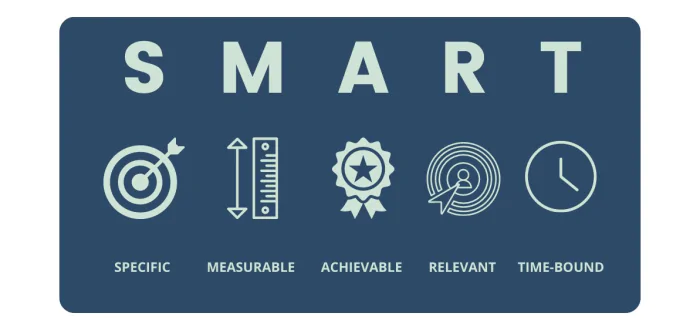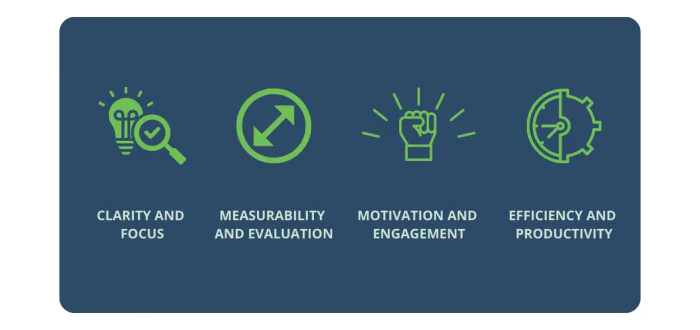As a consultant, setting clear and concise goals is critical to making your work effective and successful. SMART goals are a proven way to achieve this. In this article, we'll go into detail about what smart goals are and how you can use them effectively in consulting.
What are SMART goals?
The term "SMART goals" is an acronym that stands for specific, measurable, achievable, relevant, and time bound. These criteria serve as a guide to formulate goals in a way that is clearly defined and easy to understand.
Here is a closer look at each criterion:

- Specific (S):
A goal should be specific and precise. Avoid vague wording and make sure everyone involved understands what exactly is to be accomplished. - Measurable (M):
A goal should be measurable in quantifiable units. This allows progress to be monitored and success to be evaluated. - Achievable (A):
A goal should be challenging, yet realistic. It should be achievable if reasonable efforts are made. - Relevant (R):
A goal should be consistent with overall goals and strategic plans. It should add value to the business or client and has to be relevant. - Time bound (T):
A goal should have a clear time frame within which it is to be achieved. This helps maintain focus and urgency.
Application of SMART Goals in Consulting
- Project Planning and Execution:
Before you start a consulting project, set clear goals for the project.
For example:
Complete comprehensive market research by the end of the second quarter to identify potential gaps in the competitive landscape. - Customer Relationship and Communication:
Set goals to improve the quality of the customer relationship.
For example: Within four weeks, conduct a feedback survey of customers to measure their satisfaction with our services. - Personal Development:
Smart goals in consulting can also be beneficial on a personal level.
For example:
By the end of the year, attend two professional development seminars to improve my data analytics skills. - Revenue Growth and Business Development:
Formulate goals to help grow the business.
For example:
In the next six months, increase revenue by 15% by entering new market segments.
Benefits of SMART Goals in Consulting

- Clarity and Focus:
Smart goals provide clarity on what is to be achieved and focus attention on what is important. - Measurability and Evaluation:
Measurability allows for objective evaluation of progress and success, which enables better decision-making. - Motivation and Engagement:
The challenge and achievability of smartly set goals motivate consultant teams and individuals to give their best. - Efficiency and Productivity:
Smart goals promote efficiency as resources are targeted to achieve the goals.
Conclusion
Smart goals are a powerful tool in consulting to achieve effectiveness and success. By clearly defining goals, measuring progress, and focusing on relevant outcomes, you'll be able to take your consulting work to a new level. Use the smart goal setting method to achieve excellence at both the individual and corporate level and drive sustainable growth.


